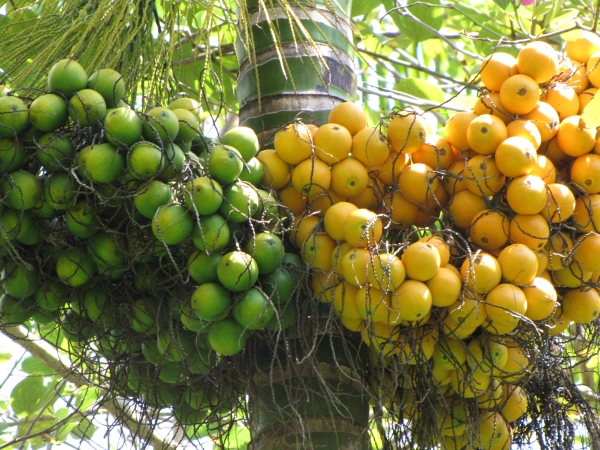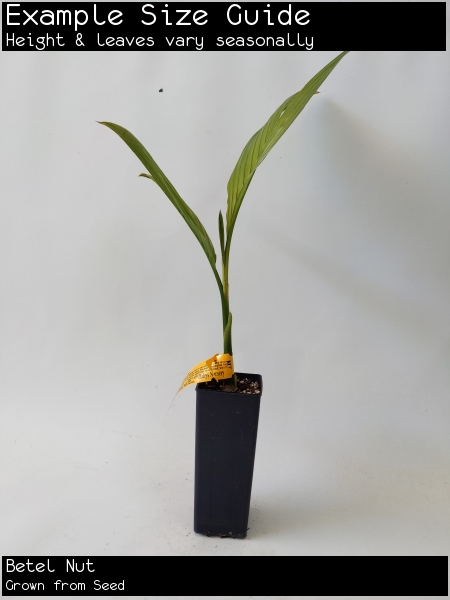![Betel Nut For Sale (Large)]()
(2/4) Betel Nut For Sale (Large)
![Betel Nut For Sale]()
(3/4) Betel Nut For Sale
![Leaf of the Betel Nut]()
(4/4) Leaf of the Betel Nut
fullscreen1
Betel Nut
Areca catechu
A graceful, tropical palm also commonly called Areca nut, this is not a true nut but a palm seed. Its use carries dangers, however, see Warning below. Used in many Asian and Pacific cultures, the seed is separated from the outer layer of the fruit and may
... Read More be used fresh, dried, boiled, baked, roasted or cured.they are chewed in a similar way to chewing tobacco, producing a mildly euphoric and stimulating effect, and helping reduce tension. Betel nuts and betel quids are generally chewed for their psychoactive properties that help reduce tension, produce a feeling of well being and facilitate social interactions and strengthen social ties. Around 10 to 20% of the world's population chews betel nut in some form. This makes it the 4th most widely-used psychoactive substance,after nicotine, alcohol and caffeine. WARNING: The use of this plant, though, is hazardous and is classed as a Group 1 carcinogen by the International Agency for Research on Cancer. Extreme caution should be exercised. If you ever have to remove them, the heart is also edible and quite palatable.
Important Information about the Hazards of using Betel Nut
Other Names: Areca nut
$39.00 ($39.00-$49.00 choose a size)
Preferred Climate Tropical
Grown From Seedling
Max Height (when in the ground with good conditions) +10m
Plants required to Pollinate 1 (Self Pollinating)
Can it Handle Frosts? Sometimes
Amount of leaves in Winter? All Leaves (Evergreen)
Quarantine Restrictions to these Areas WA
Water Requirements Moderate Watering
Is it a Dwarf Fruit Tree? No (Full Size)
Time to Fruit/Flower/Harvest 5+ Years
Sun or Shade Full (Sun:80%-100%)
Preferred Soil Type Good Drainage
Soil pH Neutral (6.6-7.3pH)
Create a Filter to find similar plants





























